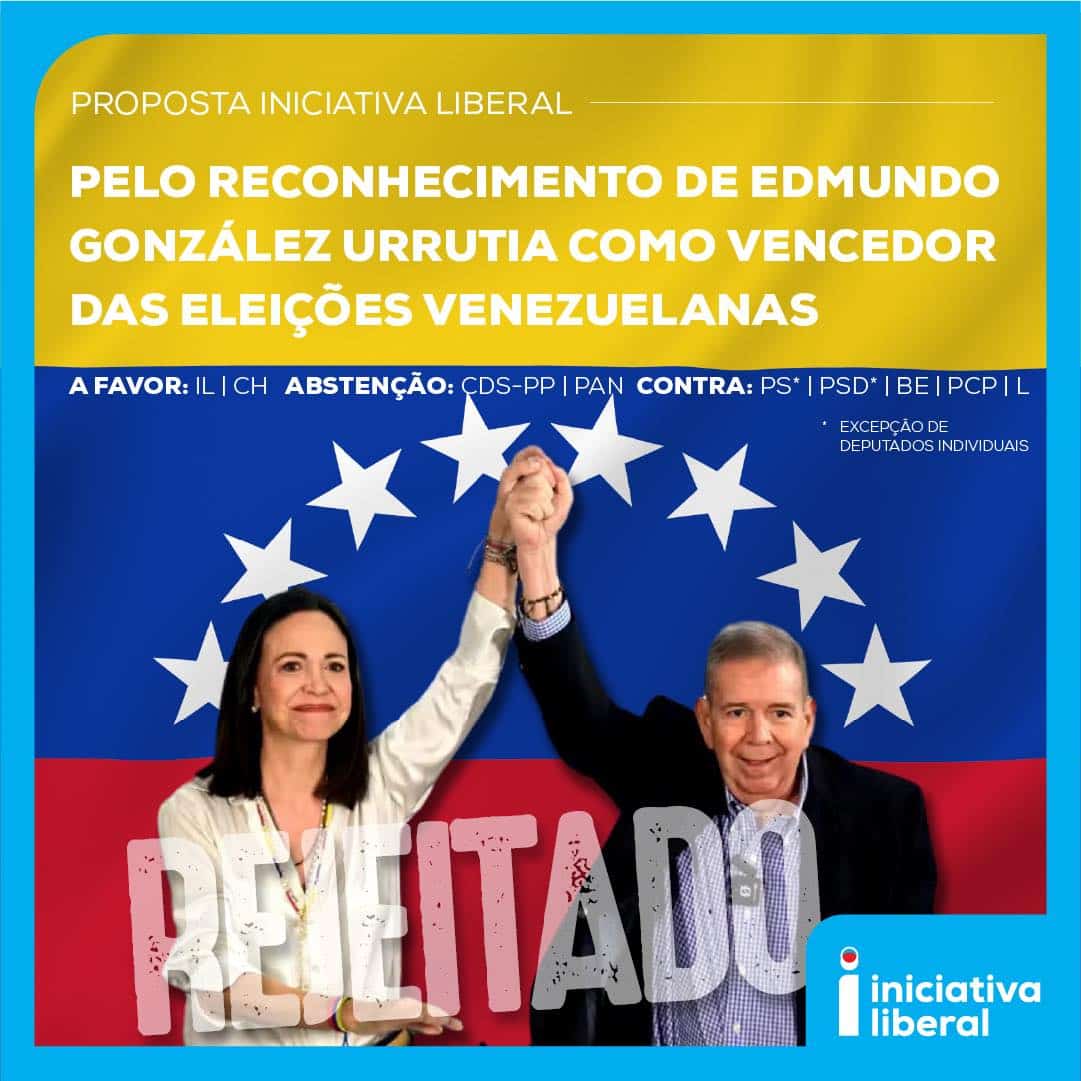Parliament’s decision counters position taken in Europe
In a fairly tortuous exercise in semantics, Portugal’s parliament has today rejected the Liberal Initiative Party’s draft resolution to recognise Edmundo González as the winner of the Venezuelan presidential elections in July and instead approved a PSD recommendation against recognising Nicolás Maduro’s victory.
The motion for a resolution presented by Liberal Initiative also received votes in favour from right wing party CHEGA, abstentions from CDS-PP and PAN and votes against from the PSD and PS benches, as well as from BE, PCP and Livre.
PS MPs Sérgio Sousa Pinto and Isabel Oneto voted in favour and PS MP Filipe Neto Brandão abstained, as did Pedro Coelho, Paula Margarido and Paulo Neves from the PSD, differing from their respective benches.
The PSD resolution recommending that the government does not recognise Nicolás Maduro as the winner of the Venezuelan elections was approved with all parties voting in favour (except the PCP, which voted against).
The social democrats’ project calls for efforts to guarantee the security of the Portuguese community living in Venezuela and for the defence, together with the European Union, of “an end to human rights violations and political persecution” in the country.
A CHEGA resolution recommending that the government take measures to defend democracy and the rule of law in Venezuela was also approved, with PCP communists voting against and PS and Livre abstaining.
Parliament also approved, with PCP voting against and the PSD and CDS-PP abstaining, a draft resolution by BE to respect the will of the Venezuelan people and by Livre to “support the fight for democracy and electoral integrity in Venezuela”.
The PCP put to the vote a resolution of solidarity and respect for the sovereignty of Venezuela, which was rejected by every single other party. (PCP communists only have four MPs, so just four hands went up among the sea of faces.)
These projects were all debated earlier this week.
Rui Rocha, leader of the Liberal Initiative, regretted the PSD and PS reaction to his party’s resolution, calling it cowardice. “When Portugal fought against a dictatorship, it had the support of the international community”, he pointed out. “Venezuelans need our support”…
PSD parliamentary leader Hugo Soares said that, unlike the Liberal Initiative, “parties with responsibility for government should know when, how and where to recognise electoral results” and stressed his “total condemnation of the Maduro regime and what was probably the great electoral fraud” of the last presidential elections.
João Paulo Rebelo, from the PS, argued that the Socialists maintain a position of “unshakeable coherence” and said that it would be an “unacceptable interference” for the Portuguese parliament to want to “decide who won the elections in Venezuela”.
This is all well and good, but the European Parliament managed to make this very decision last month, recognising González with little difficulty, “strongly condemning the electoral fraud orchestrated by the regime-controlled National Electoral Council, which refused to make public the official result” and condemning “in the strongest possible terms the murders, harassment, violations and arrests perpetrated against the democratic opposition, the Venezuelan people, and civil society”.
Spain’s government did the same.
Thus Portugal, for all the arguments its political parties have put forwards, could very easily have done more.
Source: LUSA/ Europarliament/ Iniciative Liberal Facebook




















